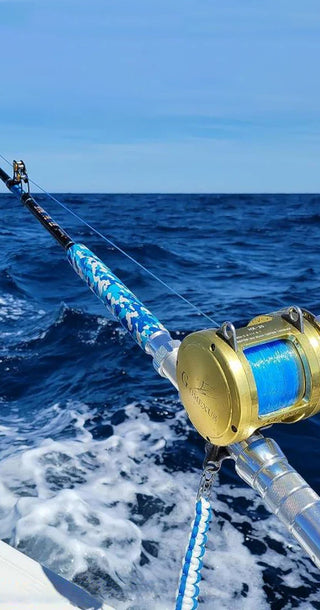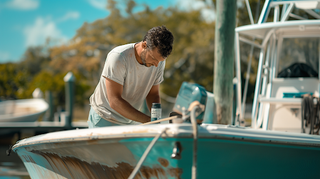When it comes to overhauling a boat, boat owners are often faced with a crucial decision: should they undertake the task themselves or pay for professional services? This decision depends on various factors, including the owner's skill set, budget, and available time. This article delves into the pros and cons of both approaches, offering a detailed look at the manual skills needed for a boat overhaul and the benefits of hiring professionals.
Manual Skills Needed for Boat Overhaul
Fiberglass and Hull Repair
Skills Required
To effectively repair fiberglass and hulls, a deep understanding of fiberglass materials is essential. This includes knowing how to use repair kits and having a clear grasp of the hull's structure.
Tools Needed
A successful fiberglass repair requires sanders, grinders, fiberglass repair kits, and safety equipment. These tools are crucial for smoothing surfaces, grinding out damaged areas, and applying new fiberglass layers.
Learning Resources
Aspiring boat repair enthusiasts can benefit from online tutorials, marine maintenance courses, and manufacturer manuals. These resources provide step-by-step guidance and practical tips for mastering fiberglass repair.
Electrical Systems
Skills Required
Working on a boat's electrical systems demands the ability to read wiring diagrams, use a multimeter, identify different types of wires, and safely handle crimpers and soldering irons. Electrical systems on boats are often exposed to moisture and saltwater, making them prone to damage and potentially hazardous if not handled correctly.
Challenges
The primary challenge lies in the moisture-rich environment, which can cause corrosion and short circuits. Understanding how to waterproof and protect electrical connections is crucial for safety and functionality.
Plumbing Systems
Skills Required
Boat plumbing requires reading and understanding diagrams, blueprints, and schematics. Good mechanical skills are also necessary for working with tools and machinery, as tasks often involve replacing parts, making repairs, and ensuring the plumbing system is leak-free and functional.
Tasks Involved
Typical tasks include installing new pipes, fixing leaks, and maintaining the water flow system. These tasks are essential for keeping the boat's plumbing system in top condition.
Hardware Replacement
Skills Required
Replacing hardware on a boat involves the ability to remove rust or corrosion, use various tools (such as power tools, hammers, and screwdrivers), and apply or remove glues and epoxies. The complexity of hardware replacement tasks can vary significantly, with some installations being straightforward while others require detailed instructions or professional guidance.
Routine Maintenance
Tasks
Routine maintenance is critical for a boat's longevity and performance. Regular cleaning, engine maintenance, lubrication of moving parts, battery care, electrical system inspection, bilge monitoring, and applying antifouling bottom paint are all part of this process.
Importance
Regular maintenance helps prevent deterioration and ensures the boat remains in optimal condition. Neglecting these tasks can lead to costly repairs and decreased boat performance over time.
Paying for Professional Services
Cost Considerations
Annual Maintenance Costs
New boat owners typically spend around $5,000 to $8,000 per year on maintenance. This includes services such as cleaning, detailing, winterization, complete servicing, and trailer maintenance.
Depreciation
The value of most boats can depreciate by up to 50% in the first three years. Sometimes, it is more economical to buy a pre-owned boat and invest in professional maintenance to maintain its value and performance.
Professional Expertise
Marine Technicians
Marine technicians are professionals who perform maintenance, repair, and other duties on a wide range of boats and yachts. They possess a variety of skills necessary for successful build, repair, and restoration projects. Hiring a professional ensures that complex and potentially dangerous tasks are handled correctly, reducing the risk of damage or injury.
Convenience and Reliability
Time and Effort
Overhauling a boat requires significant time and effort, which may not be feasible for all boat owners. Paying for professional services can save time and ensure the job is done right the first time.
Quality Assurance
Professionals have access to specialized tools and materials, and their work often comes with a warranty or guarantee, providing peace of mind. This reliability is especially important for ensuring that major repairs and overhauls are performed to the highest standards.
Engine Maintenance
Skills Required
Maintaining a boat engine requires a good understanding of mechanical systems and engines. This includes knowing how to change oil, replace filters, check and maintain fuel systems, and inspect and replace spark plugs.
Tools Needed
Essential tools for engine maintenance include wrenches, screwdrivers, oil extractors, fuel additives, and spark plug wrenches. Having a service manual specific to your engine model is also highly recommended.
Learning Resources
Engine maintenance can be learned through online tutorials, workshops, and courses offered by marine associations. Manufacturer manuals provide detailed instructions and are invaluable resources for DIY enthusiasts.
Painting and Varnishing
Skills Required
Painting and varnishing a boat requires precision and patience. Knowledge of different types of marine paints and varnishes, surface preparation techniques, and application methods is essential.
Tools Needed
To achieve a professional finish, you'll need sanders, brushes, rollers, paint trays, masking tape, and high-quality marine paints and varnishes. Safety gear, such as masks and gloves, is also crucial to protect against fumes.
Learning Resources
Numerous online videos and courses can guide you through the painting and varnishing process. Books on boat maintenance and DIY boat forums are also excellent resources for tips and advice.
Carpentry and Woodwork
Skills Required
Boat carpentry involves tasks like repairing or replacing wooden parts of the boat, building custom cabinetry, and fitting out interiors. Skills in measuring, cutting, shaping, and joining wood are essential.
Tools Needed
Carpentry tools for boat work include saws, chisels, planes, clamps, sanders, and a variety of fasteners. High-quality marine-grade wood and adhesives are also necessary for durable repairs and constructions.
Learning Resources
Learning boat carpentry can be achieved through woodworking classes, marine carpentry courses, and hands-on experience. Online tutorials and guides specific to boat carpentry provide valuable insights and techniques.
Upholstery and Canvas Work
Skills Required
Upholstery work on a boat involves replacing or repairing cushions, seats, and other fabric components. Skills in sewing, cutting patterns, and using heavy-duty sewing machines are crucial.
Tools Needed
Essential tools for upholstery work include sewing machines, staple guns, fabric scissors, and upholstery foam. High-quality marine-grade fabrics are necessary to withstand the harsh marine environment.
Learning Resources
Courses in marine upholstery and online tutorials can help you develop the skills needed for this task. Books and guides on marine fabrics and techniques also offer useful information.
Gelcoat Repair
Skills Required
Repairing gelcoat involves fixing scratches, chips, and cracks in the boat's surface. This requires skills in surface preparation, color matching, and application of gelcoat.
Tools Needed
Tools for gelcoat repair include sandpaper, polishers, gelcoat paste, applicators, and safety equipment. A color chart for matching gelcoat is also essential.
Learning Resources
Gelcoat repair can be learned through manufacturer guides, online tutorials, and marine maintenance courses. Practical experience and hands-on practice are invaluable for mastering this skill.
Rigging and Sails
Skills Required
For sailboats, maintaining rigging and sails involves inspecting and replacing rigging components, repairing sails, and ensuring proper tension and alignment. Skills in knot tying, splicing, and sail repair are essential.
Tools Needed
Rigging tools include swaging tools, wire cutters, tension gauges, and splicing kits. For sail repair, you'll need sailcloth, sewing kits, and adhesive patches.
Learning Resources
Courses in sail and rigging maintenance, as well as online tutorials, provide comprehensive instruction. Books on sailing and rigging techniques also offer valuable information and tips.
Professional Services: In-Depth
Specialized Skills and Knowledge
Marine Electrical Technicians
Professional marine electricians possess specialized knowledge in dealing with boat electrical systems. They can diagnose and fix complex electrical issues, ensuring safety and reliability.
Benefits of Hiring
Hiring a professional ensures that all electrical work complies with safety standards, reducing the risk of fire or electrical failure. Professionals also have access to high-quality materials and tools.
Cost Efficiency
Long-Term Savings
While hiring professionals may seem costly upfront, it can save money in the long run by preventing expensive mistakes and ensuring the longevity of repairs and installations.
Depreciation Management
Professionals can help manage the depreciation of your boat by maintaining its condition, thus preserving its value over time. Investing in regular professional maintenance can be more economical than frequent DIY fixes that may not last.
Access to Advanced Tools and Materials
Specialized Equipment
Professionals have access to advanced tools and materials that may not be readily available to DIY enthusiasts. This access allows them to perform repairs and maintenance more effectively and efficiently.
Quality Assurance
Using professional-grade tools and materials ensures that repairs and maintenance meet high standards of quality. This quality assurance is critical for maintaining the safety and performance of your boat.
Time Management
Time Constraints
For many boat owners, finding the time to perform extensive overhauls can be challenging. Professional services provide a time-efficient solution, allowing owners to enjoy their boats without the burden of maintenance tasks.
Balancing Work and Leisure
Hiring professionals allows boat owners to balance their work and leisure time better. By outsourcing maintenance tasks, owners can focus on enjoying their time on the water rather than working on their boats.
Reliability and Peace of Mind
Professional Guarantees
Many professional services come with warranties or guarantees, providing peace of mind that the work will be done correctly and any issues will be addressed promptly.
Consistency
Professionals offer consistent quality in their work, ensuring that all maintenance and repairs are performed to the same high standards. This consistency is vital for the long-term reliability of the boat.
Conclusion: Making the Right Decision for Your Boat Overhaul
Assessing Your Skill Level
Self-Evaluation
Before deciding whether to take on a boat overhaul yourself, it's crucial to evaluate your own skills honestly. Ask yourself if you have the necessary mechanical, electrical, and carpentry skills required for the job. If you have experience with DIY projects and a good understanding of boat systems, you might be well-equipped to handle the overhaul.
Learning and Improvement
If you're passionate about learning and improving your skills, taking on some of the overhaul tasks yourself can be rewarding. There are numerous resources available to help you learn, from online tutorials and courses to books and workshops. This approach allows you to gradually build your expertise and tackle more complex tasks over time.
Budget Considerations
Initial Costs
DIY overhauls can be cost-effective if you already have some of the necessary tools and skills. However, the initial investment in specialized tools and materials can add up. It's important to factor in these costs when planning your budget.
Long-Term Savings
While hiring professionals might seem expensive initially, it can save you money in the long run by preventing costly mistakes. Professionals can also help maintain your boat's value, reducing depreciation and potentially saving you money on future repairs.
Time Management
Time Investment
Overhauling a boat is a time-intensive process. Consider whether you have the time to dedicate to such a project without it interfering with your other responsibilities. If you're short on time, hiring professionals might be the better option to ensure the work gets done efficiently.
Balancing Hobbies and Maintenance
If boating is your primary hobby, spending time on maintenance might not feel like a burden. However, if you prefer spending your time enjoying the water rather than working on your boat, paying for professional services can free up more of your leisure time.
Safety Considerations
Handling Dangerous Tasks
Some tasks involved in a boat overhaul can be dangerous if not handled correctly, such as electrical work and engine repairs. If you're not confident in your ability to perform these tasks safely, it's best to leave them to the professionals.
Avoiding Common Pitfalls
Professionals are trained to handle the complexities and potential hazards of boat maintenance. They can ensure that tasks are completed correctly and safely, reducing the risk of damage or injury.
Quality and Reliability
Professional Standards
Professional services come with the assurance of quality and reliability. Technicians have access to specialized tools and materials and follow industry standards to ensure high-quality work.
Warranty and Guarantees
Many professional services offer warranties or guarantees, providing peace of mind that any issues will be addressed. This can be especially important for major repairs and overhauls.
Personal Satisfaction and Enjoyment
The Joy of DIY
For many boat owners, the satisfaction of completing a project themselves is a significant motivator. If you enjoy hands-on work and the process of learning new skills, a DIY boat overhaul can be a fulfilling experience.
Stress and Frustration
On the other hand, tackling a complex project can also be stressful and frustrating, especially if things don't go as planned. Consider whether you're prepared to handle potential setbacks and challenges.
Environmental Considerations
Sustainable Practices
DIY enthusiasts often have more control over the materials and methods used in their projects, allowing for more sustainable practices. For example, you can choose eco-friendly paints and materials to minimize your environmental impact.
Professional Expertise
Professionals are also knowledgeable about environmentally friendly practices and can recommend and use sustainable materials and methods.
Networking and Community
Joining a Community
Engaging in DIY boat maintenance can connect you with a community of like-minded individuals. Forums, clubs, and local groups offer support, advice, and camaraderie.
Professional Networks
Hiring professionals can also introduce you to a network of trusted service providers, ensuring you have reliable contacts for future maintenance needs.
Practical Examples and Case Studies
DIY Success Stories
Many boat owners have successfully overhauled their vessels, sharing their stories and tips online. These success stories can provide inspiration and practical advice for your own project.
Professional Case Studies
Professionals often share case studies showcasing their work. Reviewing these can help you understand the level of expertise and quality you can expect from professional services.
Choosing the Right Approach for You
Combining DIY and Professional Services
In many cases, a combination of DIY and professional services can be the best approach. You might handle routine maintenance and minor repairs yourself while leaving more complex tasks to the professionals.
Making an Informed Decision
Ultimately, the decision comes down to your individual circumstances, including your skills, budget, time, and preferences. By carefully considering these factors, you can make an informed decision that ensures your boat remains in top condition.
Final Thoughts
Investing in Your Boat's Future
Whether you choose to overhaul your boat yourself or hire professionals, the goal is to protect and enhance your investment. Regular maintenance and careful attention to your boat's needs will ensure it remains a reliable and enjoyable vessel for years to come.
Embracing the Journey
Overhauling a boat is a journey, whether you embark on it yourself or with the help of professionals. Embrace the process, learn from each experience, and take pride in maintaining and improving your boat.
Additional Resources
For those interested in further reading or finding professional services, here are some useful links:
By considering all these aspects, boat owners can make the best choice for their needs and ensure their vessel remains seaworthy and enjoyable for many adventures to come. Happy boating!



